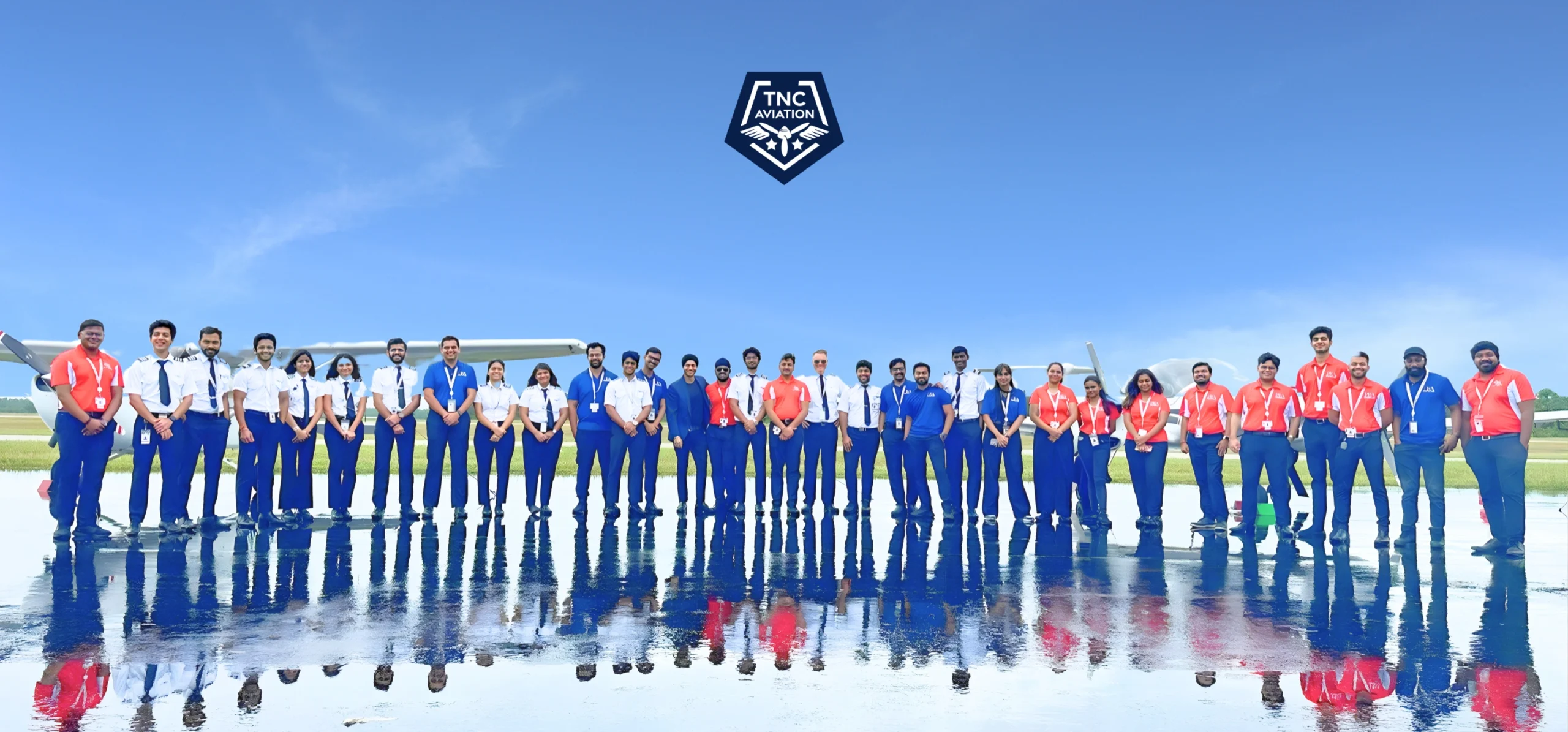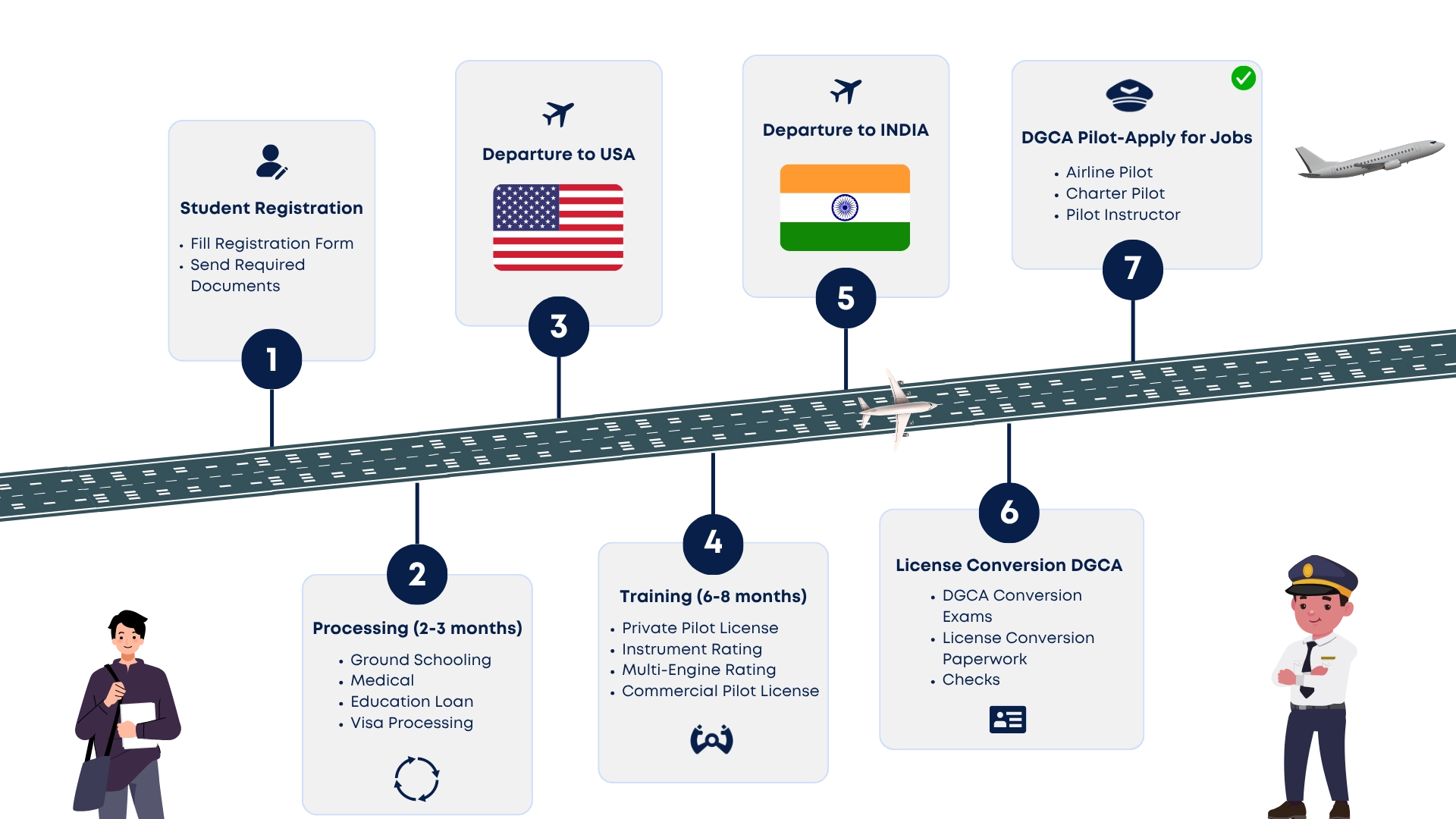Throttle Into An Amazing
AVIATION CAREER With Us!
Throttle Into an Amazing
AVIATION CAREER
With Us!

The disciplined program offered by TNC are available in various locations like USA, South Africa, New Zeeland and Canada with certification by the DGCA, FAA, SACAA, NZCAA, and Transport Canada respectively.
The disciplined program offered by TNC is available in various locations like the USA, South Africa, New Zealand, and Canada with Certification by the DGCA, FAA, SACAA, NZCAA, and Transport Canada respectively.

TNC Indian CPL Program
is the most popular choice of course for all Aviators.
The Disciplined Program Offered by TNC is available in various locations like the USA, South Africa, New Zealand, and Canada with Certification by the DGCA, FAA, SACAA, NZCAA, and Transport Canada respectively.

TNC Aviation has been helping aspiring aviators achieve their flying dreams since 2009. With a deep commitment to excellence, TNC provides world-class pilot training programs that blend strong theoretical ground school knowledge with hands-on flying experience, the perfect foundation for becoming a pilot in India. Backed by professional experts from the aviation industry, TNC offers global standards of training through its wide range of programs, including Commercial Pilot License (CPL), DGCA Ground School, Cabin Crew Training, Instructor Rating, Multi-Engine Rating, Instrument Rating, and Airbus and Boeing Type Rating courses, along with ATPL. Beyond training, TNC handholds every student through their aviation journey, offering complete support with Visa Assistance, DGCA Class 1 & 2 Medicals, Pilot Education Loans, DGCA License Conversion, Check-rides, and Job Assistance. With strong partnerships across the world’s best flight schools and academies, TNC ensures the highest quality of pilot training in the most efficient time frame. If you dream of flying high and building a rewarding career in aviation, TNC Aviation is the name you can trust to turn your ambitions into altitude.
Why Choose Us?






Your Roadmap to Cockpit!













Becoming a pilot involves clearing Class II medical followed by attending Theoretical Knowledge Training Classes (Ground Classes) and Practical Training (Flight Training) as outlined by DGCA India. Upon successfully completing these training sessions, you can then apply for a Commercial Pilot License.
Minimum educational qualification to enroll for a Pilot Training course is to pass in Class 10+2 (or equivalent) with Maths & Physics as compulsory subjects. You can pursue a CPL course after graduation as well.
Yes, it is essential. Before commencing your Pilot Training course, you need to undergo a Class II medical assessment conducted by DGCA-approved medical examiners. Afterward, you must undergo a Class I medical assessment before applying for your Pilot License.
To become a pilot, you need to pass a total of 7 exams. The main subjects include Air Regulations, Air Navigation, Aviation Meteorology, and Technical General. Additionally, there are 2 technical-specific exams related to the type of aircraft you choose for your flight training. These exams are conducted by DGCA.
You’ll also need to pass the RTR License examination, conducted by the Wireless Planning Commission (WPC) India, to obtain your Certificate of Proficiency – Radio Telephony (Restricted) – COP-RTR.
Type Rating is a vital qualification for pilots to operate specific aircraft, mandated for those with a take-off weight over 5,700 kg or turbine-powered engines. The course, lasting 1 to 3 months, covers aircraft systems, performance, and simulator training in normal and emergency situations. The duration varies based on pilot experience and chosen aircraft type.
Each day will be a combination of guided independent study, group study with fellow students, AATD simulator lessons, and flight lessons.
Rest assured, you have options. You can register with the National Institute of Open School (NIOS) or any other open school approved by DGCA. By passing the equivalent examinations, you become eligible to undertake a Pilot Training course. Additionally, you have the flexibility to pursue CPL Ground Classes and an equivalency course simultaneously, allowing you to save valuable time in the process.
Pilots often become Certified Flight Instructors (CFI) primarily to accumulate flight time, a crucial requirement for many aviation jobs, including commercial airline pilot positions. Teaching flight training offers a fast-paced environment, enabling instructors to steadily gain valuable flight hours. In addition to building experience, instructing reinforces the instructor’s own knowledge from initial flight training. Over time, CFIs become highly skilled pilots with the privilege of training and endorsing fellow pilots for FAA practical tests.
Further milestones may be met within the category of flight instructor, earning you different types of certifications:
There are several reasons why a pilot might want to earn a multi engine rating: